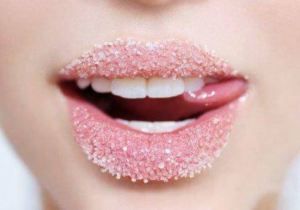 Sucralose, saccharin, aspartame, acesulfame potassium and now neotame are all artificially sweet substances that cause problems for many. Today we discuss the last, neotame.
Sucralose, saccharin, aspartame, acesulfame potassium and now neotame are all artificially sweet substances that cause problems for many. Today we discuss the last, neotame.
Neotame (kind of sounds like the Matrix) is essentially aspartame with the addition of a 3,3-dimethylbutyl group which is supposed to stop it from being broken down to phenylalanine and thus safe for people with phenylketonuria. I don’t mean to be an alarmist but this stuff isn’t exactly benign. Here are two links to the chemical properties and handling warnings regarding 3,3-dimethylbutyl;
http://www.chemicalbook.com/ChemicalProductProperty_EN_CB4274454.htm
http://www.chemicalbook.com/RiskAndSafety.htm#Risk
It is flammable and an irritant to the skin and eyes and respiratory system. Much of the data regarding this substance has been published by industry and not independent researchers. Here is a short review of a review looking at some of those studies. I will post the link so you can take a look at it too if you want.
In a study of 19 healthy males and 12 healthy males in a three way crossover study no “chemical, haematological, physiological or subjective findings were recorded“.1
In another study 12 people of each sex were given 20mg caps of neotame daily and was well tolerated, according to the paper. The only difference seen was greater availability in women than men. So maybe with long term ingestion women would be more affected.
In another larger study of 76 men and 75 women, neotame was dosed at 0.5mg/kg and 1.5mg/kg bodyweight for 13 weeks. The researchers concluded there was no difference between treatment groups and placebo. Headaches in this study were not significantly different between groups either.1
Another looked at non-insulin dependent diabetics. Neotame was given 3 times a day in capsules at the same doses as the above mentioned study. Plasma glucose and insulin were unaffected. Flu like syndrome, headache and sinusitis were reported with more in the placebo group reporting problems than the test group.1
As far as metabolism goes, 4.9 percent of the total dose given to subjects was excreted as -dimethylbutyl)-L-aspartic acid, so some of the molecules are obviously being cleaved. Could this lead to an alteration of healthy gut flora? It certainly could be possible. No studies yet though to confirm that. Not to mention that the Panel looking at this stated that “there was extensive excretion of neotame metabolites in faeces” which would indicate again the possibility of gut flora alteration over time.
You can read the rest of the paper with the link below. I again have to repeat myself that these studies were not long term and can’t really tell us much about the population at large.
According to one news report neotame is also now being used in cattle feed because the price of molasses is too high. 2 Sweetos apparently is also increasing the amount of weight on the cattle. 3,4 So an artificial sweetener is increasing weight in cattle apparently because of increased feeding.
Side Effects
Many of the side effects of neotame are the same as aspartame which makes sense since neotame is just aspartame with that 3,3-dimethylbutyl group attached to it. Neurologic effects are possible because of the phenylalanine, as discussed with aspartame. I can imagine that it could effect mood or anxiety. I know my stress goes up when I chew gum with aspartame in it. Seizures have been reported in mice with electroshock potentiation.5 I don’t know how many people are receiving electroshock therapy regularly but the concern would be somebody who is predisposed to seizure activity in the first place.
I also think it worth noting that this substance was approved by the FDA for use in the food supply while things like Stevia could only be allowed as a supplement. I know not all things natural are healthy per se but the things the FDA pulls are just crazy anymore. Neotame is also made by Nutrasweet which is a former part of Monsanto. Dr. Mercola has an interesting chart of people who worked for Monsanto and in the US government.3 Things like this make approvals like neotame and others make sense.
I’ve personally not ever tried neotame…at least to the best of my knowledge. This goes into my category of probably best avoided. It’s becoming increasingly difficult to avoid such things as they creep their way into the food supply. The easiest thing to do is avoid processed foods. If you have stress, anxiety, seizures or other unexplained ailments and you partake of these or think you do, try eliminating them from your diet and give some naturally sweet fruit a shot. Apples taste really good once you train your tongue to taste things as they are and not artificially inseminated with junk. For some having things like neotame every once in a while will probably not adversly affect them at all. I’m just trying to avoid any potential complications all together.
Next up we’ll be talking about some other alternatives like stevia or xylitol.
Do you have any experiences with neotame or any other sweetener? Let me know in the comments.
CIAO
1.Aguilar, Fernando, et al. “Neotame as a sweetener and flavour enhancer1 Scientific Opinion of the Panel on Food Additives, Flavourings, Processing Aids and Materials in Contact with Food.” (2007).
3.http://articles.mercola.com/sites/articles/archive/2012/03/28/neotame-more-toxic-than-aspartame.aspx
4.http://www.janethull.com/newsletter/1210/neotame_hidden_danger_in_holiday_food_supply.php
5.Maher, Timothy J., and Richard J. Wurtman. “Possible neurologic effects of aspartame, a widely used food additive.” Environmental Health Perspectives 75 (1987): 53.
